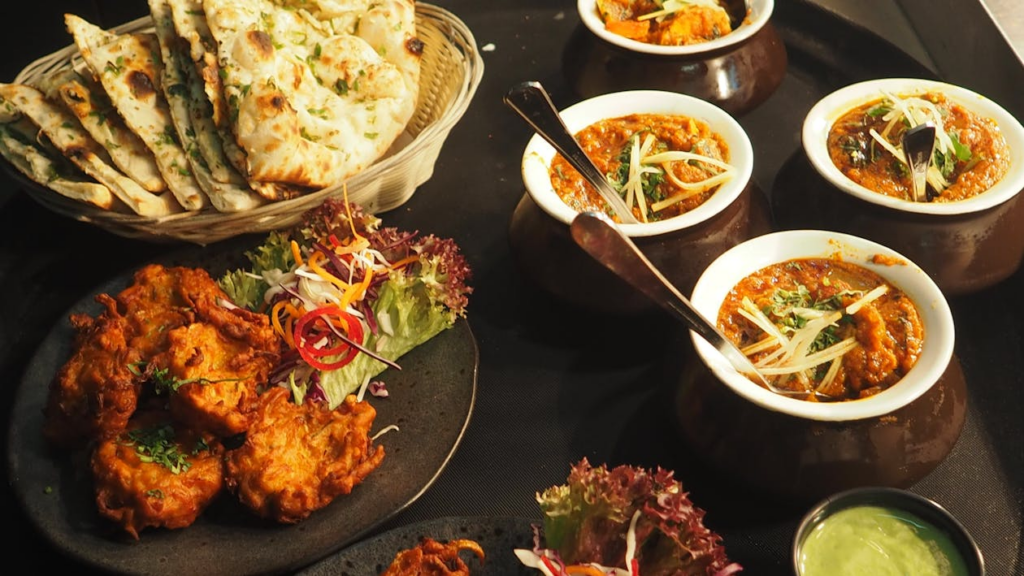For 38 years, Martin Freeman was celebrated for his stellar performances on both the silver screen and television, holding steadfast to a vegetarian lifestyle. His journey into vegetarianism began in the winter of 1986 during his teenage years, a time marked by introspection and a growing discomfort with the notion of consuming animal flesh. This ethical stance propelled him through decades of meatless living, guided by a principle of compassion for all living beings.
A Change of Heart for Martin Freeman

However, life is a tapestry of experiences, and as Martin Freeman entered his fifth decade. A shift occurred—a culinary awakening, if you will. In a candid revelation, the esteemed actor disclosed his departure from vegetarianism, citing a newfound perspective on diet and a desire to embrace the full spectrum of culinary delights.
Read More: World’s First 3D-Printed Vegan Salmon Arrives in Grocery Stores – Here’s What You Should Know.
Rediscovering the Joys of Omnivory

With this transition, Martin Freeman found himself at a crossroads of gastronomic exploration, liberated from the constraints of a meatless existence. Gone were the days of meat substitutes and veggie-centric meals. Instead, he embarked on a journey of rediscovery, indulging in the rich tapestry of flavors that meat-based dishes have to offer.
Savoring the “Food of the Gods”

In his culinary odyssey, Martin Freeman found solace in the simple pleasures of life—pork pies adorned with savory jelly, scotch eggs with their satisfying crunch. These were not just meals; they were nostalgic journeys to a time when food was more than sustenance—it was an expression of culture, tradition, and indulgence.
Navigating the Complexities of Dietary Trends

Yet, Freeman’s dietary evolution comes at a time of heightened scrutiny over the health implications of plant-based meat alternatives. Recent research has cast doubt on the purported benefits of these products, revealing potential pitfalls such as heightened sodium intake and increased processing. Dr. Sumanto Haldar, a prominent figure in nutrition science, highlights the need for a paradigm shift in the development of these alternatives. Emphasizing the importance of nutritional integrity and accessibility.
Read More: Vegetarian Lady Ate a Single Meat Burger and Eventually Became a Cruelty-Free Pig Farmer
Reflections on the Plant-Based Movement

The discourse surrounding plant-based diets has witnessed a meteoric rise in recent years, driven by ethical, environmental, and health considerations. However, as evidenced by Freeman’s culinary odyssey and the broader landscape of dietary trends, the quest for a balanced and fulfilling diet remains an ever-evolving journey—one where taste, nutrition, and sustainability intersect in intriguing ways.
Conclusion: A Culinary Tapestry

As the culinary landscape continues to evolve, propelled by shifting consumer preferences and scientific inquiry, the story of Martin Freeman’s dietary journey serves as a compelling reminder of the multifaceted nature of food and its profound impact on our lives. From ethical considerations to gastronomic indulgence, Freeman’s narrative embodies the complexity and richness of the human experience. One bite at a time.
Breaking News: Vegans Consume MORE Ultra-Processed Foods Than Meat-Eaters

In a surprising revelation, a recent study conducted by the Nutritional Epidemiology Research Team at Sorbonne University in Paris has uncovered a startling trend. Vegans actually consume a higher quantity of ultra-processed foods (UPFs) compared to their meat-eating counterparts.
The study, which analyzed the daily dietary habits of 19,812 meat eaters, 646 pesco-vegetarians, 500 vegetarians, and 254 vegans, delivered unexpected results. Contrary to popular assumptions, it was found that individuals who consumed the least amount of animal-based foods, particularly vegans, exhibited a greater consumption of UPFs.
Specifically, the study revealed that the diets of vegans comprised approximately 39.5 percent UPFs, while vegetarians followed closely behind at 37 percent, and meat-eaters trailed at 33 percent.
These findings challenge prevailing notions regarding the healthfulness of vegan diets and emphasize the importance of nuanced dietary analysis. Further research is imperative to unraveling the intricacies of dietary patterns and their impact on overall health and well-being.
Read More: Chest Pain May Be a Symptom of a Common Vitamin Deficiency
Exploring the Health Quotient: Debunking Myths About Vegan vs. Meat Diets

Join nutrition expert Rob Hobson via The Daily Mail as he delves into the age-old debate: Is vegan food truly healthier than its meaty counterparts? In a comparative analysis, Hobson scrutinizes plant-based “burgers,” “chicken,” and “meat” pies against their traditional meat equivalents. Uncovering revelations that might just challenge your perceptions. Prepare to be surprised by the findings!
Battle of the Burgers: 100% Beef vs. Plant-Based (Pea and Rice Protein)

In the clash of culinary contenders, Rob Hobson delivers his verdict on the classic beef burger versus its plant-based counterpart. Here’s the breakdown:
Nutritional Comparison: While the plant burger edges slightly higher in energy, both options offer a commendable source of protein. The vegan burger cleverly harnesses a blend of plant proteins, mirroring beef’s provision of essential amino acids.
Ingredient Insights: Delving deeper, the beef burger boasts simplicity with fewer ingredients and a preservative aiding in shelf life extension. Conversely, the vegan alternative relies on stabilizers and emulsifiers to achieve the desired texture and longevity.
Nutrient Profile: However, when it comes to vital nutrients like iron and B12, the plant burger falls short compared to its beefy counterpart.
Considerations: Further scrutiny reveals potential health implications, as research suggests a link between emulsifiers, such as methylcellulose present in the plant burger, and heightened risk of cardiovascular diseases. While causation remains to be fully established, it’s a factor worthy of consideration.
Final Verdict: As far as nutritional prowess, the beef burger emerges victorious, outshining its plant-based counterpart. Despite the allure of plant-based alternatives, the beef burger maintains its status as the reigning champion in this showdown.
The Nugget Showdown: Chicken vs. Plant-Based (Soy Protein)

Prepare for a taste test like no other as we pit the beloved chicken nuggets against their plant-based counterparts, crafted from soy protein. In this clash of culinary titans, Rob Hobson weighs in on flavor, texture, and nutritional value to determine the ultimate winner. Let the nugget battle commence!
Quality Considerations: The chicken nuggets under scrutiny hail from a budget brand, tipping the scales towards a more ultra-processed profile compared to pricier counterparts with fewer additives. However, regardless of cost, vegan nuggets tend to pack in more ingredients and additives.
Nutritional Comparison: While the vegan options edge slightly higher in calories, the nutrient profiles remain fairly similar. However, it’s worth noting that the chicken nuggets hold an advantage in nutrient density, as some ingredients in the vegan nuggets offer little nutritional value.
Final Verdict: In this culinary face-off, the chicken nuggets emerge triumphant. Despite the allure of plant-based alternatives, the classic chicken nuggets reign supreme, boasting a superior combination of flavor, texture, and nutritional value.
The Ham Showdown: Traditional vs. Meat-Free (Soy and Pea Protein)

In the Clash of the Hams, Rob Hobson delivers his assessment of traditional ham versus its plant-based counterpart. Here’s the verdict:
Nutritional Comparison: Surprisingly, both products boast similar nutritional profiles, with the main distinction being the higher salt content in the meat version. However, the meat-free alternative typically features a longer ingredient list and more additives to achieve the desired texture.
Ingredient Insights: One common additive, carrageenan gum, is prevalent in many ultra-processed vegan foods, serving as a thickening and stabilizing agent. While its impact on gut health and inflammation is debated, further research is warranted.
Health Considerations: The World Cancer Research Fund advises caution regarding processed meat consumption due to its association with colorectal cancer risk, attributed to the nitrites used for preservation. Extensive studies suggest a notable increase in the risk of colon and rectal cancers linked to processed meat intake.
Final Verdict: While both products have their merits and drawbacks, Hobson leans towards the meat-free option, citing concerns regarding processed meat consumption. In this instance, the plant-based ham emerges victorious, offering a potentially healthier alternative in the pursuit of balanced nutrition and reduced health risks.
Read More: 10 fat-burning plant foods that have more protein than an egg
The Pie Face-Off: Chicken & Mushroom vs. Vegan ‘Chicken’ & Mushroom (Soy Protein)

Get ready for a pie showdown of epic proportions as we pit the classic chicken and mushroom pie against its plant-based counterpart, featuring soy protein. Rob Hobson steps into the ring to analyze flavor, texture, and nutritional content, determining the ultimate winner. Let the pie battle begin!
Nutritional Parallels: Surprisingly, both pies exhibit striking similarities in terms of nutritional composition. They share the common traits of ultra-processed foods, characterized by elevated levels of saturated fat, salt, and sugar. Moreover, their lengthy ingredient lists feature additives seldom found in home kitchens.
Flavor Dynamics: Delving into flavor, both versions employ tactics to heighten taste appeal. Flavor enhancers like monosodium glutamate contribute to an intense savory experience, enticing consumers to indulge further. Additionally, ingredients such as hydrogenated oils and soy lecithin play roles in creating desired textures and mouthfeel, further enhancing the pie’s allure.
Palatability Pitfalls: However, the very factors that make these pies irresistible can also be their downfall. The super palatability of ultra-processed foods often leads to overconsumption, contributing to the obesity epidemic.
Final Verdict: In this culinary showdown, neither pie emerges victorious. Both versions exhibit characteristics of ultra-processed foods, laden with additives and contributing to health concerns. In the quest for a wholesome diet, steering clear of these options may be the wisest choice.
The Tenders Face-Off: Chicken vs. Vegan ‘Chicken’ (Soy Protein)

Get ready for a tender showdown as we compare classic chicken tenders to their plant-based counterpart, crafted from soy protein. Rob Hobson steps into the arena to dissect flavor, texture, and nutritional content, determining which tender reigns supreme. Let the tender battle commence!
Nutritional Parity: Surprisingly, both renditions of tenders boast similar nutritional profiles, with minor distinctions. However, the vegan option features a lengthier ingredient list, potentially raising concerns.
Ingredient Insights: Both versions incorporate stabilizers or thickeners to enhance texture and prolong shelf life. While research hints at potential cardiovascular risks associated with high cellulose consumption, definitive conclusions are lacking.
Considerations: Given the significantly longer ingredient list of the vegan option, Hobson leans towards the classic chicken tenders. The simplicity of ingredients in the chicken tenders presents a more appealing choice.
Final Verdict: In this tender showdown, the classic chicken tenders emerge victorious. While both options offer comparable nutritional value, the streamlined ingredient list of the chicken tenders tips the scales in their favor. When in doubt, simplicity often reigns supreme.
Read More: The Best and Safest Way to Store Avocados and Prevent Them From Browning

